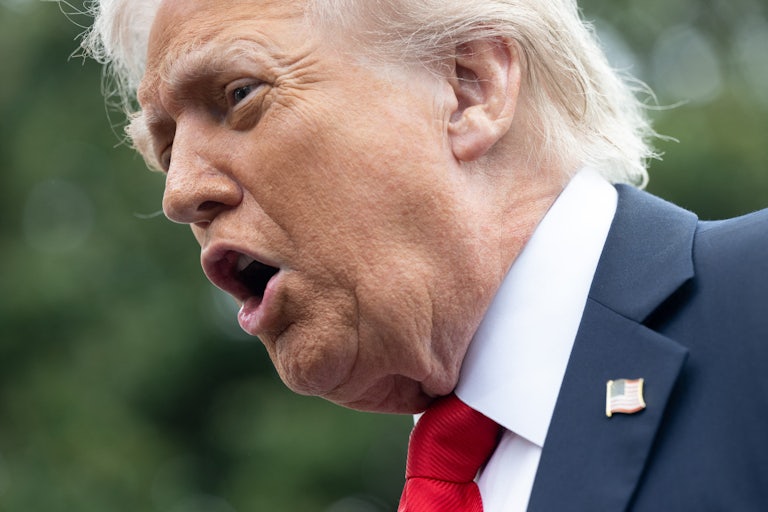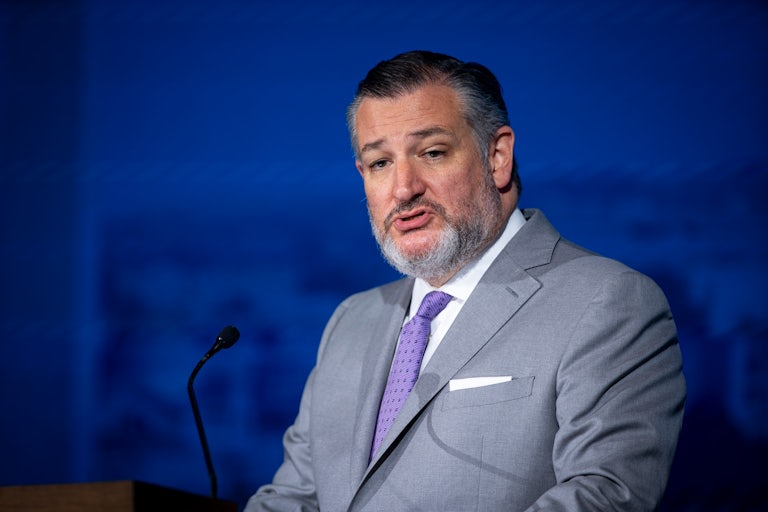Trump Just Revoked Deportation Protections From Thousands of Refugees
The U.N. described the situation in Syria as “fragile” just a month ago.

President Trump is taking deportation protections away from Syrian immigrants in the midst of a resurgence of militant groups like Al Qaeda and the Islamic State.
Around 6,000 Syrians are currently living and working in America under Temporary Protected Status. Now they will be forced to return to a country that the United Nations described as “fragile,” and rife with “sectarian tension” just one month ago.
The U.N. reported that Syria still “remained in a volatile and precarious phase” six months after the fall of President Bashar Al Assad in December 2024. “Member States warned of growing risks posed by the Islamic State of Iraq and the Levant (ISIL) and Al-Qaeda, who continue to view the country as a strategic base for external operations.… The interim Government of the Syrian Arab Republic, led by Hayat Tahrir Al-Sham (HTS), faced multiple security challenges, including asserting control over territory and diverse armed factions/fighters, as well as controlling foreign terrorist fighters, and countering ISIL resurgence.”
This does not sound like a stable, amicable situation to abruptly force Syrians to go back to. These people came here as civil war refugees under President Obama, and now they’re being forced back into a situation that has similarly devolved into factional violence.
Former Citizenship and Immigration policy head Amanda Baran told The New York Times that the Trump administration’s revoking of Syrian TPS while the country deals with an internal power struggle is “gutting for the thousands of Syrians here with T.P.S. and the communities in which they live.”
“Conditions in Syria remain dangerous and unstable, clearly warranting an extension under the law,” she continued. “This administration’s disregard for the expertise of human rights experts is having real, dire consequences on the lives of everyday people as demonstrated by this reckless decision.”
But the Trump administration sees it much differently.
“This is what restoring sanity to America’s immigration system looks like,” said Tricia McLaughlin, the assistant secretary for public affairs at Homeland Security. “Conditions in Syria no longer prevent their nationals from returning home. Syria has been a hotbed of terrorism and extremism for nearly two decades, and it is contrary to our national interest to allow Syrians to remain in our country. T.P.S. is meant to be temporary.”
Syrians will have 60 days to gather their lives and leave the country, or face arrest and forced deportation.
The Trump administration has also spitefully moved to revoke the TPS status of people from Venezuela, Cuba, Haiti, Nicaragua, and Cameroon.








